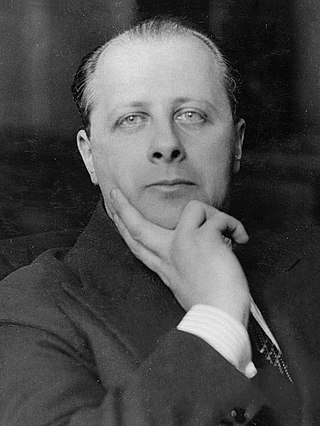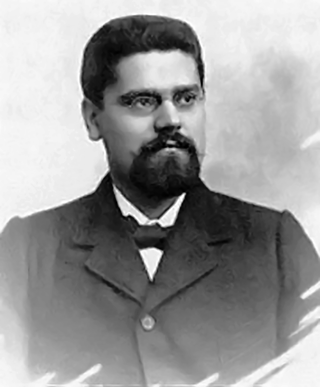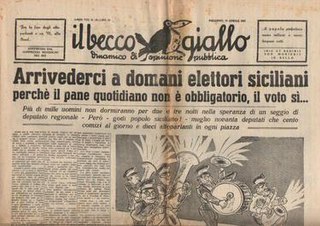
Francesco Saverio Vincenzo de Paolo Nitti was an Italian economist and political figure. A Radical, he served as Prime Minister of Italy between 1919 and 1920.

The Italian Liberal Party was a liberal political party in Italy.

Giovanni Amendola was an Italian journalist, professor, and politician. He is noted as an opponent of Italian fascism.
The Aventine Secession was the withdrawal of the parliament opposition, mainly comprising the Italian Socialist Party, Italian Liberal Party, Italian People's Party and Italian Communist Party, from the Chamber of Deputies in 1924–25, following the murder of the deputy Giacomo Matteotti by fascists on 10 June 1924.

Filippo Turati was an Italian sociologist, criminologist, poet and socialist politician.
Il Popolo d'Italia was an Italian newspaper published from 15 November 1914 until 24 July 1943. It was founded by Benito Mussolini as a pro-war newspaper during World War I, and it later became the main newspaper of the Fascist movement in Italy after the war. It published editions every day with the exception of Mondays.

Carlo Alberto Rosselli was an Italian political leader, journalist, historian, philosopher and anti-fascist activist, first in Italy and then abroad. He developed a theory of reformist, non-Marxist socialism inspired by the British Labour movement that he described as "liberal socialism". Rosselli founded the anti-fascist militant movement Giustizia e Libertà. Rosselli personally took part in combat in the Spanish Civil War, where he served on the Republican side.

The Manifesto of the Anti-Fascist Intellectuals, written by Benedetto Croce in response to the Manifesto of the Fascist Intellectuals by Giovanni Gentile, sanctioned the irreconcilable split between the philosopher and the Fascist government of Benito Mussolini, to which he had previously given a vote of confidence on 31 October 1922. The idea of an anti-Fascist manifesto came to Giovanni Amendola, who wrote to Croce, a proclaimed anti-Fascist, for his opinions on 20 April 1925:
Dear Croce, have you read the Fascist manifesto to foreign intellectuals? ... today, I have met several people who feel that, following the publication of the Fascists' document, we have the right to speak and the duty to respond. What is your opinion? Would you be willing to sign such a document, or even write it yourself?

The "Manifesto of Fascist Intellectuals", by the actualist philosopher Giovanni Gentile in 1925, formally established the political and ideologic foundations of Italian Fascism. It justifies the political violence of the Blackshirt paramilitaries of the National Fascist Party, in the revolutionary realisation of Italian Fascism as the authoritarian and totalitarian rėgime of Prime Minister Benito Mussolini, who ruled Italy as Il Duce, from 1922 to 1943.

Corrado Alvaro was an Italian journalist and writer of novels, short stories, screenplays and plays. He often used the verismo style to describe the hopeless poverty in his native Calabria. His first success was Gente in Aspromonte, which examined the exploitation of rural peasants by greedy landowners in Calabria, and is considered by many critics to be his masterpiece.

Mussolini and I is a 1985 made-for-television docudrama film directed by Alberto Negrin. It chronicles the strained relationship between Italy's fascist dictator Benito Mussolini and his son-in-law and foreign minister, Count Galeazzo Ciano, based on Ciano's diaries. Made in English as an Italian-French-German-Swiss-Spanish-US co-production, with Bob Hoskins, Anthony Hopkins and Susan Sarandon in the leading roles, it first aired on Rai Uno on 15 April 1985 in a 130-minute version. On 8 September 1985, it premiered in the USA on HBO in an extended four-hour version.

Giovacchino Forzano was an Italian playwright, librettist, stage and film director. A resourceful writer, he authored numerous popular plays and produced opera librettos for most of the major Italian composers of the early twentieth century, including the librettos for Giacomo Puccini's Suor Angelica and Gianni Schicchi.

Il Becco Giallo was an antifascist satirical magazine in the 1920s in Italy. The magazine existed between 1924 and 1926.

L'Ora was a Sicilian daily newspaper published in Palermo. The paper was founded in 1900 and stopped being published in 1992. In the 1950s-1980s the paper was known for its investigative reporting about the Sicilian Mafia.

Leopoldo "Leo" Longanesi was an Italian journalist, publicist, screenplayer, playwright, writer, and publisher. Longanesi is mostly known in his country for his satirical works on Italian society and people. He also founded the eponymous publishing house in Milan in 1946 and was a mentor-like figure for Indro Montanelli.

Giulio Alessio was professor of Finance and, after 1920, Political economy at the University of Padua for more than fifty years. He was not yet thirty when he produced his two volume study of the evolution of the Italian taxation system between 1861 and approximately 1900. It was one of several works that he wrote which became mainstream texts during and beyond the first half of the twentieth century. He also entered national politics, serving between 1897 and 1924 as a deputy. As political parties developed in Italy, he became a member of the Radical Party. He accepted several ministerial appointments in centre-left governments between 1920 and the coming to power in 1922 of Benito Mussolini, whose tactics and policies he excoriated.

Alberto Cianca (1884–1966) was an Italian journalist and anti-fascist politician. He edited several significant publications, including Il Mondo, and served in the Parliament and Senate.
The National Union was an anti-fascist political party founded by Giovanni Amendola in the aftermath of the Giacomo Matteotti murder and the Aventinian secession.
Il Tevere was a Fascist newspaper which was published in Rome, Kingdom of Italy, between 1924 and 1943. It is known for its founder, Benito Mussolini.

Olindo Vernocchi was an Italian politician, journalist and anti- fascist, national secretary of the Italian Socialist Party (PSI), member of the Constituent Assembly of Italy and president of the Istituto Luce.
















